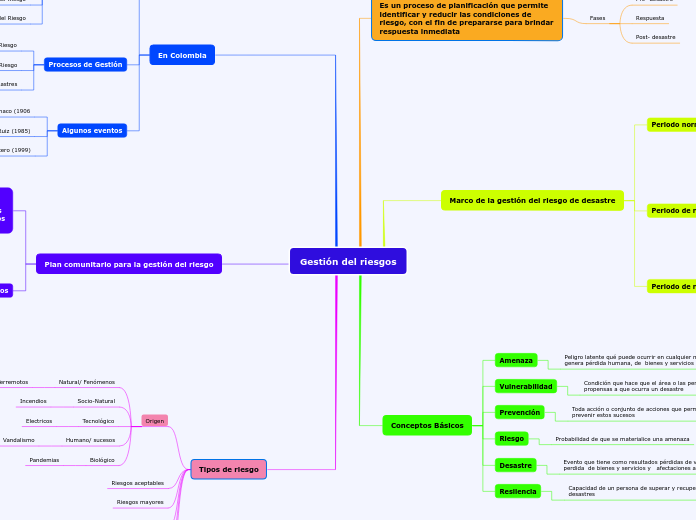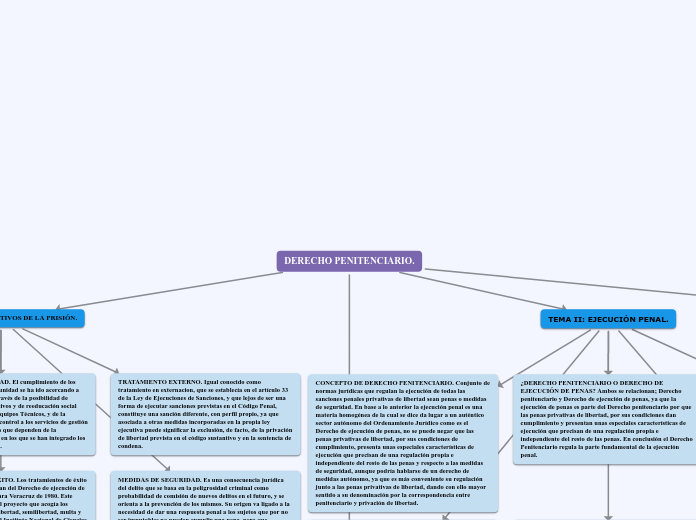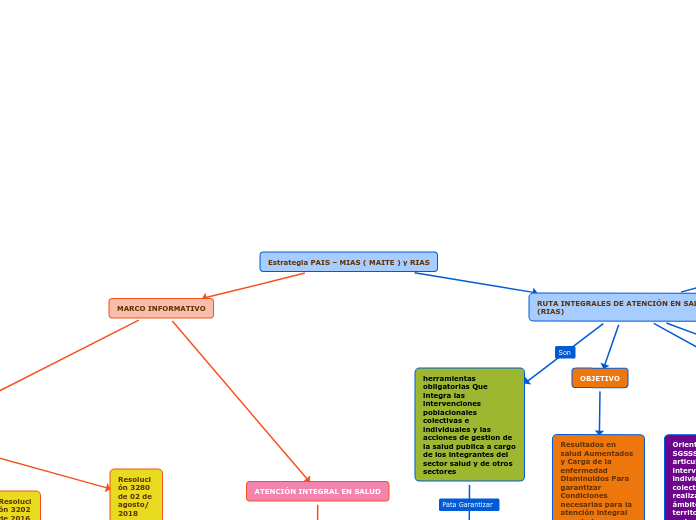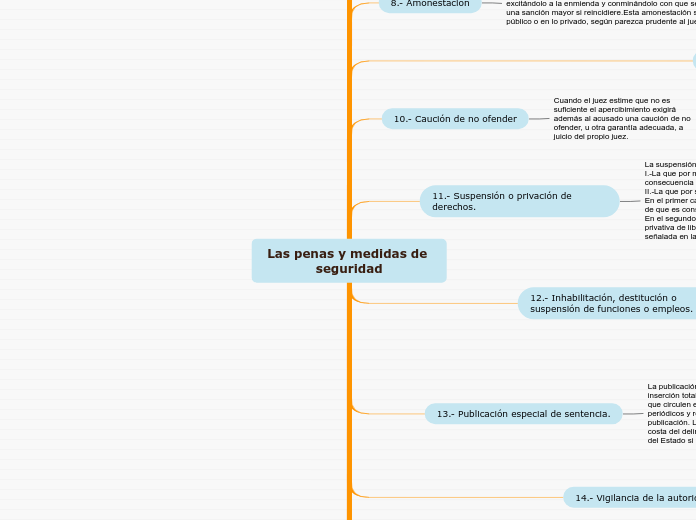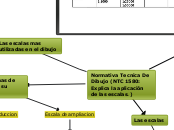Gestión del riesgos
In linguistics, syntax is the set of rules, principles, and processes that govern the structure of sentences in a given language, usually including word order.
Tipos de riesgo
Riesgos puros o aleatorios
Riesgos especulativos
Riesgos convencionales
Riesgos mayores
Riesgos aceptables
Origen
Biológico
Pandemias
Humano/ sucesos
Vandalismo
Tecnológico
Electricos
Socio-Natural
Incendios
Natural/ Fenómenos
Terremotos
Plan comunitario para la gestión del riesgo
A compound sentence is a sentence that has at least two independent clauses joined by a comma, semicolon or conjunction. An independent clause is a clause that has a subject and verb and forms a complete thought.
Procesos
Create your own compound sentences, using the coordinators above.
3.Manejar los desastres, a través de la respuesta a las emergencias
2.Reducir el riesgo
1.Conocer el riesgo
Identificar los distintos factores de riesgo (amenaza y vulnerabilidad)
Escenario del riesgo
Conjunto de lineamientos que adoptan las autoridades públicas y los dirigentes de la comunidad controlar las amenazas reducir los factores de vulnerabilidad y recuperarse de los mismos
When independent clauses are joined with coordinators (also called coordinating conjunctions), commas and semicolons, they do more than just join the clauses. They add meaning and flow to your writing.
En Colombia
A complex sentence is a sentence that contains an independent clause and one or more dependent clauses.
An independent clause can stand alone as a sentence, but a dependent clause even though it has a subject and a verb cannot stand alone.
Algunos eventos
The subject clause is a dependent clause that acts as a subject.
El sismo en el Eje Cafetero (1999)
La erupción del Nevado del Ruiz (1985)
Maremoto Tumaco (1906
Procesos de Gestión
A predicative clause may be introduced by conjunctions - that, whether, whether... or, as, as if, as though, because, lest, the way - or connectives.
The latter may be conjunctive pronouns - who, whoever, what, whatever, which - or conjunctive adverbs - where, wherever, when, whenever, how, why.
Manejo de Desastres
Reducción del Riesgo
Conocimiento del Riesgo
Ley 1523 de 2012
The object clause is a phrase on which a verb performs an action. It falls at the end of a sentence, and is governed by a verb or a preposition.
Consejo Municipal para la Gestión del Riesgo
Consejo Departamental para la Gestión del Riesgo
Consejo Nacional para la Gestión del Riesgo
Sistema Nacional de Gestión del riesgo de Desastres
Conceptos Básicos
Resilencia
Capacidad de un persona de superar y recuperse de los desastres
Desastre
See the example below and try to create your own simple sentences.
Tim is driving the red car.
Evento que tiene como resultados pérdidas de vidas humanas, perdida de bienes y servicios y afectaciones ambientales
Riesgo
See the example below and try to create your own simple sentences.
Tim is driving the car with his mother.
Probabilidad de que se materialice una amenaza
Prevención
See the example below and try to create your own simple sentences.
Tim is the driver.
Toda acción o conjunto de acciones que permiten mitigar prevenir estos sucesos
Vulnerabilidad
See the example below and try to create your own simple sentences.
Tim drives the car.
Condición que hace que el área o las personas están más propensas a que ocurra un desastre
Amenaza
See the example below and try to create your own simple sentences.
Tim drives.
Peligro latente qué puede ocurrir en cualquier momento. genera pérdida humana, de bienes y servicios
Marco de la gestión del riesgo de desastre
Periodo de recuperación
An adverbial is an individual word (that is, an adverb), a phrase, or a clause that can modify a verb, an adjective, or a complete sentence.
Reactivación
Recostruir
Rehabilitar
Periodo de respuesta
Traditional grammar defines the object in a sentence as the entity that is acted upon by the subject.
Prestar atención
The direct object is the receiver of the action mentioned in the sentence.
Evaluación de daños
coordinación
rutas
Busqueda y rescate
Periodo normal
The subject of a sentence is the person, place, thing, or idea that is doing or being something. You can find the subject of a sentence if you can find the verb.
Ask the question, 'Who or what 'verbs' or 'verbed'?' and the answer to that question is the subject.
Preparar
Mitigar
Evaluación del riesgo
Prevenir
Es un proceso de planificación que permite identificar y reducir las condiciones de riesgo, con el fin de prepararse para brindar respuesta inmediata
Fases
Post- desastre
Respuesta
Pre- desastre
